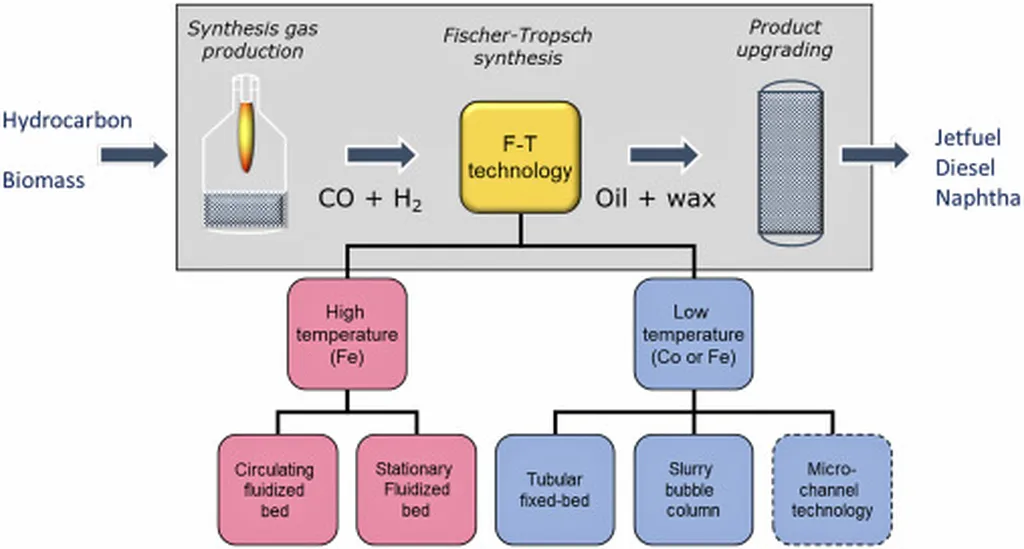In a significant stride towards sustainable energy, researchers have explored the viability of replacing fossil fuels with biomass in synthetic oil production, offering a promising alternative that could reshape the energy sector’s landscape. The study, led by Yang Lei from the School of Chemistry and Chemical Engineering at Wuhan University of Science and Technology, delves into the economic and environmental aspects of three primary routes for producing synthetic oil: natural gas to liquid (GTL), coal to liquid (CTL), and biomass to liquid (BTL).
The research, published in the journal “Results in Engineering” (translated from the original Chinese title), reveals that while the coal-to-liquid (CTL) process currently holds the best economic performance with a minimum selling price of $1,088.9 per ton, the biomass-to-liquid (BTL) process stands out for its environmental benefits. “The BTL process shows a remarkable reduction in greenhouse gas emissions, making it a strong contender for replacing CTL and GTL processes in the future,” Lei explains.
The techno-economic analysis conducted in the study highlights the cost-effectiveness of each process, with CTL leading the pack, followed by GTL at $1,413.4 per ton, and BTL at $1,437.7 per ton. However, the life cycle assessment paints a different picture, underscoring the environmental advantages of the BTL process. “The BTL process reduces greenhouse gas emissions by 2.79 kg CO2 equivalent per kilogram of synthetic oil, whereas CTL and GTL processes emit 9.75 and 12.30 kg CO2 equivalent, respectively,” Lei notes.
The study also found that with fluctuations in the prices of coal and natural gas, and when the price of wood chips is significantly lower, the BTL process could economically outperform CTL and GTL. This potential is further enhanced by active policies related to non-renewable energy use and carbon emissions, such as carbon taxes and renewable energy incentives.
The findings of this research could have profound implications for the energy sector. As the world grapples with the urgent need to mitigate environmental impacts and achieve sustainability goals, the transition from fossil fuels to renewable resources in synthetic oil production becomes increasingly critical. The BTL process, with its environmental advantages, could pave the way for a more sustainable future.
Moreover, the study’s insights could influence policy decisions and investment strategies in the energy sector. As Lei suggests, “With the right policies and market conditions, the BTL process could become a commercially viable and environmentally friendly alternative to CTL and GTL processes.”
In the quest for sustainable energy solutions, this research offers a beacon of hope, demonstrating the potential of biomass to revolutionize synthetic oil production and drive the energy sector towards a greener future.

